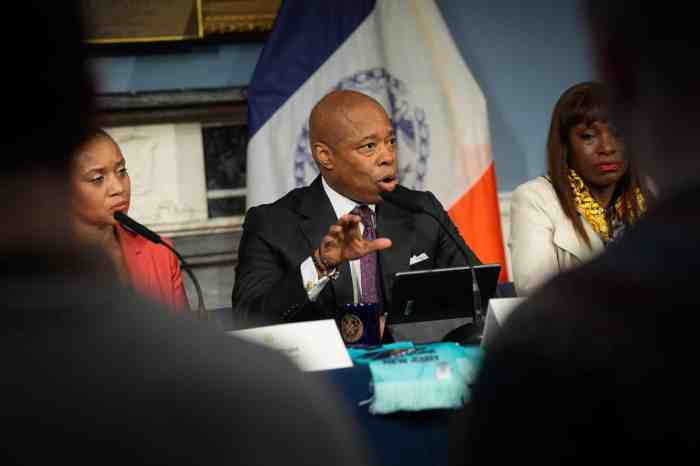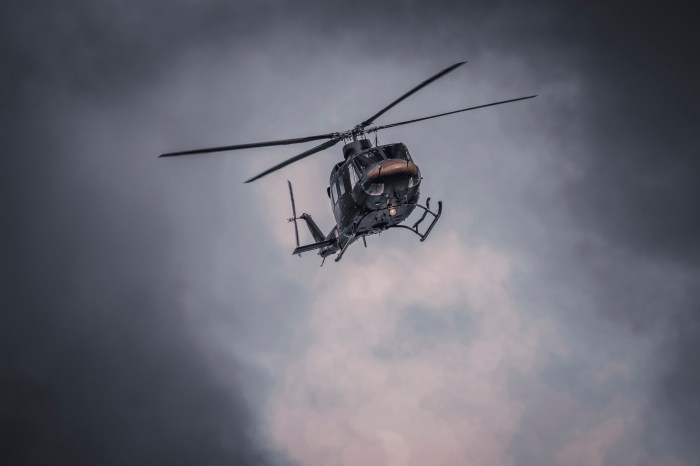Maybe right now isn’t be the best time to bring this up.
After Ferguson, after the non-indictment for the death of Eric Garner, after the assassination of two New York City policemen and the wounding of at least two more, and during the current standoff between New York policemen and the city’s mayor, Bill de Blasio, maybe it’s not the best time to support the idea of requiring all policemen, as a standard part of their uniforms, to wear video cameras that will record their actions.
Tensions between the police and the public are inflamed in places besides New York, and they manifest themselves in issues such as racially based stop-and-frisk policies and the excessive militarization of police forces.
At worst, these tensions lead to shootings. Sometimes policemen are killed; sometimes members of the public die.
In general, my sympathies are with the police. We ask them to do some of our society’s most disagreeable and difficult work, and we don’t reward them particularly well with money or respect. Sometimes we treat them with contempt, but we’re quick to call on them when we need help.
Other jobs may be more dangerous, but few require such constant and intimate contact with the most depraved facets of our culture, American citizens at their worst. It has to wear on policemen, over time.
Furthermore, virtually all of my personal contact with policemen – fortunately, it’s limited – has been characterized by their courtesy and professionalism.
Of course, I’m a middle class white guy who never speeds and is always at home long before the bars close.
On the other hand, my students, especially Hispanic and African-American guys, tell a different story. They insist that the police regularly single them out for attention and treat them with rudeness.
The truth must lie somewhere between their experience and mine. Wearable video cameras on every policeman might help determine where, precisely, it lies and may help neutralize some of the tension between the police and ordinary citizens.
Some evidence indicates that cameras work. In April 2013, the New York Times reported on an experiment in the Rialto, CA, police department. Half of the 54 uniformed officers were randomly assigned to wear cameras each week. During the first 12 months of the experiment complaints against officers dropped by 88 percent. And the use of force by officers declined by 60 percent.
The findings in this study are based on small numbers, but they make sense. People behave differently in the presence of a camera.
But what about privacy? Citizens of a certain age remember George Orwell’s “1984,” the depiction of a dystopia where every action is under constant observation by Big Brother.
But the Big Brother ship has already sailed. Given the extent to which our lives are already documented and exposed by video, often entirely voluntarily, it seems strange to draw the line at cameras that could have a very positive effect on relations between the police and the public.
Still, requiring policemen to wear video cameras tends to make them look like the bad guys, implying that we have to keep an electronic watch on them. What can we give them in return? Maybe we could stop complaining when cities use cameras to control red light running at intersections, relieving policemen to devote their time and energy more valuably elsewhere.
For that matter, when it comes to traffic, we are a nation of lawbreakers, and some of our lawlessness could be controlled electronically. Here’s an example: I regularly drive a toll road that has the nation’s highest speed limit, 85 mph. Still, some drivers speed.
Every few miles I pass an electronic station that automatically deducts a toll from my account. It could just as easily deduct an extra toll – a fine, really – for passing between toll stations at a rate that exceeds 85 mph. Of course, I can hear the objections already.
But if we expect policemen to allow us to monitor their behavior with video cameras, shouldn’t we be willing to use technology to monitor our own?
John M. Crisp, an op-ed columnist for Tribune News Service, teaches in the English Department at Del Mar College in Corpus Christi, Texas. Readers may send him email at jcrisp@delmar.edu.

















